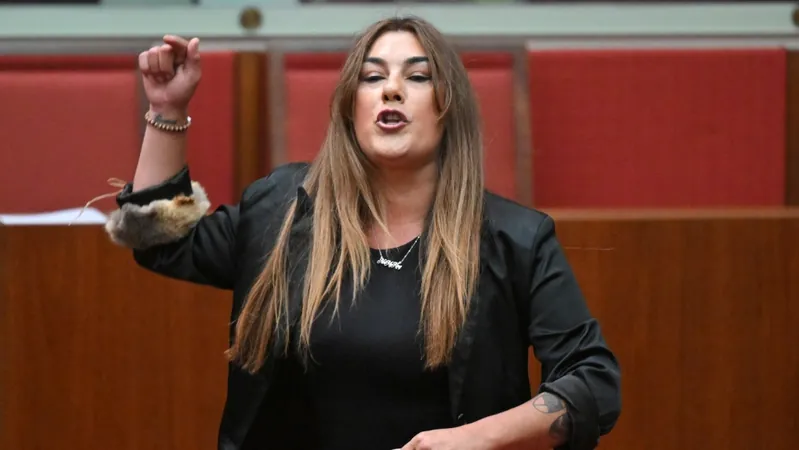
Australian Senate Acts Against Indigenous Senator Over King Charles III Outburst
2024-11-18
Author: Michael
In a significant move that has reignited debates on colonialism and Indigenous rights, the Australian Senate voted on Monday to formally censure Senator Lidia Thorpe, an Indigenous lawmaker, following her outspoken remarks directed at King Charles III during a recent reception at Parliament House. This incident marked the monarch's first visit to Australia in 13 years.
The censure, which passed with a vote of 46 to 12, serves as a symbolic reprimand of Thorpe's conduct amid heightened discussions surrounding the treatment of Aboriginal Australians. The Government leader in the Senate, Penny Wong, condemned Thorpe's outburst, arguing that it aimed to “incite outrage and grievance” against the monarchy. “This behavior reflects a troubling trend that we do not need in Australia,” Wong stated during the Senate session.
During the event, as King Charles addressed the audience, Thorpe interrupted with a passionate and expletive-filled tirade, declaring, “You are not our king. You are not sovereign.” She further accused the monarchy of historical injustices, shouting, “You committed genocide against our people. Give us our land back. Give us what you stole from us: our bones, our skulls, our babies, our people.” Security eventually escorted her out, but her statement has garnered widespread attention and support from those advocating for Indigenous rights.
In the aftermath of the censure, Thorpe remained defiant, promising to express her dissent should King Charles return to Australia. “If the colonizing king were to come to my country again, I’ll do it again,” she asserted. “I will resist colonization in this country. I swear my allegiance to the real sovereigns of these lands; First Peoples are the real sovereigns.”
Senator Mehreen Faruqi, representing the minor Greens party, criticized the Senate's decision to censure Thorpe, highlighting the systemic issues of white privilege permeating Australian politics. “This debate is not just about one senator's outburst; it reveals the ongoing impacts of colonialism and the need for accountability from the British crown regarding its historical actions,” she argued.
The incident occurs against a backdrop of persistent socio-economic disparities faced by Indigenous Australians, who represent less than 4% of the nation's population and continue to experience significant challenges in health, education, and employment.
As Australia grapples with its colonial past and seeks to redefine its relationship with Indigenous peoples, Thorpe's outburst and the Senate's subsequent response have ignited discussions about the role of the monarchy in contemporary Australia and the ongoing fight for Indigenous rights and recognition.
As the discussion intensifies, the question remains: will Australia continue to embrace an outdated colonial legacy, or will it chart a new course towards justice and reconciliation?









 Brasil (PT)
Brasil (PT)
 Canada (EN)
Canada (EN)
 Chile (ES)
Chile (ES)
 España (ES)
España (ES)
 France (FR)
France (FR)
 Hong Kong (EN)
Hong Kong (EN)
 Italia (IT)
Italia (IT)
 日本 (JA)
日本 (JA)
 Magyarország (HU)
Magyarország (HU)
 Norge (NO)
Norge (NO)
 Polska (PL)
Polska (PL)
 Schweiz (DE)
Schweiz (DE)
 Singapore (EN)
Singapore (EN)
 Sverige (SV)
Sverige (SV)
 Suomi (FI)
Suomi (FI)
 Türkiye (TR)
Türkiye (TR)